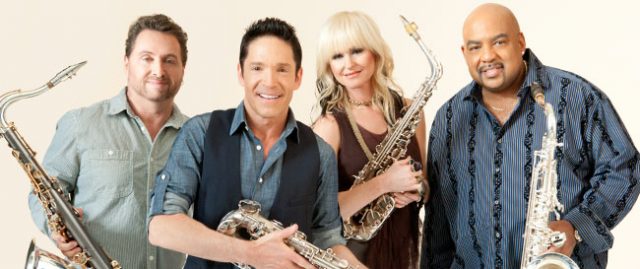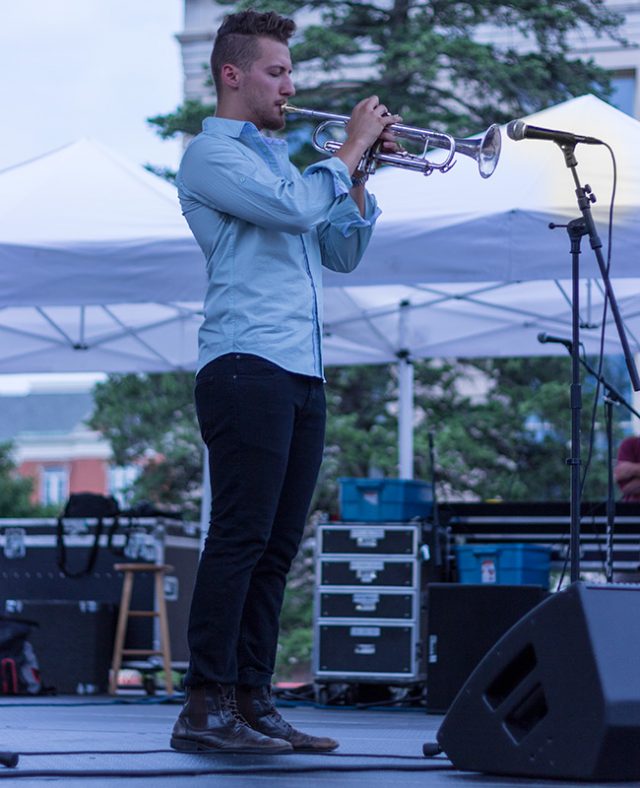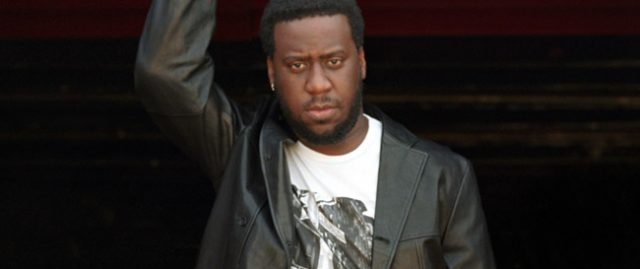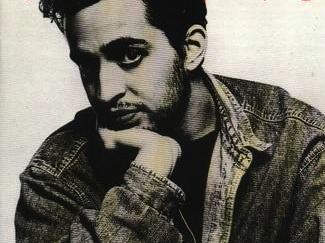There are many unsung heroes in jazz. Some may have simply faded into the shadows of popular musicians such as Louis Armstrong or Duke Ellington, or were omitted from music history books and academia for various reasons, some of which cannot be explained. Melba Liston (1926-1999) is one musician who fits this title. As a jazz trombonist and arranger, Liston performed with and composed material for a wide array of artists such as Dizzy Gillespie, Randy Weston, and Marvin Gaye, just to name a few. However, her accomplishments within jazz were never fully recognized by the mainstream media: until now.
Chicago saxophonist and composer Geof Bradfield recently premiered an extended suite, titled ‘Melba!’, which details the life and music of Liston as well as her influence on the musical genre. The debut performance of the suite took place at the Carter G. Woodson Regional Library in Chicago, and received praise from audience members, many of whom learned about a talented female musician who was not always acknowledged for her role in jazz mainly due to her gender.
Liston recieved the most acclaim for her work with Weston. She arranged two of his most innovative compositions, Uhuru Afrika (1960) and Highlife (1963). Bradfield was inspired by Weston and Liston’s work and their collaborations served as inspiration for his 2010 album, African Flowers. He is now taking her music to the forefront of the jazz community with this new project.
Bradfield will be performing the composition in different cities around the country, and also plans to record the suite, which is set to be released in 2013.
The Jazz Line recently spoke to Bradfield about ‘Melba!’ and why he chose to compose the suite about the late, jazz trombonist.
You got a phone call from Randy Weston before the premiere of Melba! What was that conversation like?
It was amazing. I was thinking, ‘Here is one of my heroes calling me the morning of this tribute piece that is really wrapped up in what he is musically.’ He said he had called to express his gratitude and to thank us for doing this. He told me how Melba was so important to him and he was very happy to see this happening. He is a very warm, beautiful person. He knew I was doing this project and he was excited about it.
How did you first hear about Melba Liston and what made you want to want to learn more about her work?
The first time I had any real, deep understanding of her music was recently. I knew about the stuff she did with Randy Weston, and honestly, that was about all I knew about her and I learned about her when I was about 19 or 20. Like many musicians in college, I worked at a record store, and I remember a double CD with Randy Weston and Dizzy Gillespie called The Spirits Of Our Ancestors, and somebody recommended that I listen to it.
I found out that Melba did the arrangement on this one and that was the first time I had heard her name. I was mainly listening to the album for the musicians and I was more of a player than a writer at that point. So then, years later, I kept seeing her name always attached to Randy Weston’s work because I have been a fan of his work for many years. But maybe just five or six years ago, I started to check her music out more and when I started studying her scores I realized how many different people she had worked with.
What was the biggest thing that surprised you in doing research about Melba Liston?
Because I always knew about her through Weston’s work, just the scope of work that she had done surprised me. When I sat down to listen to Melba Liston’s collection, there were 45 large boxes of arrangements. It was a lot of music and most of it is written by hand. So just the amount of labor involved in what she had done in her life was also surprising. It was daunting just to sit there and look at this huge pile of music and I did not get through all of it. And she did not save everything, this was just the stuff that she still had the score to, there is plenty of other stuff of her, and some of it is probably lost.
Melba Liston was in an awkward position throughout her career. Not only was she a female in jazz, but she played an instrument that was not popular in jazz. What are your thoughts on Liston and her position in jazz?
I think that is very true. If we really try, with a jazz fan, or even with an educated jazz fan, they would have a hard time naming five trombone players. But if you get a jazz fan to name five trumpet players, I do not think they would stop at 10. And not only was she a woman, but she was playing an instrument that women did not play, and the women, when they were young were discouraged from playing because you have to put your arm way out there for the slide position. And if women were small, the band director would tell them they could not play that instrument.
They told that to Melba. Also, many men were intimated by women standing on stage with them playing horns. They were okay if a woman was a singer because that put her in a different class or a piano player because then she was sitting down in the background. But you saw few women playing horns, and it certainly was not because there was something biologically going on that the woman could not play. It was a societal thing where women were not encouraged to play those instruments.
Especially with Melba coming up in that time period where there was lot of sexism and racism, she had a couple of strikes against her.
Oh yeah. Can you imagine, traveling in the south, you cannot even stay with the men you are traveling with and you and are not getting that encouragement from them. She spoke highly of a few men she worked with like Dizzy Gillespie, Randy Weston, and Quincy Jones. But, she had trouble with many men during the years that were misogynistic or sexist.
What was the experience like working on the suite about Liston’s life?
It was fun to put together and to showcase how her life affected her work. As I was studying her music, I saw this interesting art to her professional life. The one interesting thing to me was that it really began and ended in Kansas City.
Not that she ended her life in Kansas City, but that those were the two big pillars in her life. She was born and began her life as a musician in Kansas, she traveled the world as a musician, and then ended up back in Kansas City in the 1970s for this women’s jazz festival. It has sort of this nice, narrative art and it allowed me to draw on her experiences with different people and different places.
How long did it take you to compose Melba!?
It was something that I was working on for quite a while. The second movement I worked out a year ago, but I added to it and changed it and added other parts to it. The other movements I wrote mostly in about three months. There are elements in the piece that are as old as a year or two, but a core of the writing happened much faster, in a couple of months.
You will be starting a new position at Northern Illinois University in the fall. Do you plan on educating your students on Melba and maybe even having them play some of her compositions?
Yes for sure, I always like to bring a little of what I do into the classroom. Even if I am teaching something that everyone feels they know everything about, like Duke Ellington or something, I like to approach the history class or whatever it is with some historical context. I want to teach the students what was going on around that time. I try to give the students more of a feel of not just the music, but the musician’s life. The way the music sounds has to do with all these other things like racism and sexism.
What is your ultimate goal with this project?
First off, I want the people to enjoy the music. I hope that some of the people who enjoyed the music will say “oh wow I didn’t know anything about Melba Liston or Randy Weston, I’m going to check them out, and maybe they will pick up some of their records.” And the occasional academic will come out and say “I could write a paper about Melba Liston and gender studies because there are people working on that now. I hope that this will serve to give her a fair tribute and get her name out there where it really belongs.
Watch part of the Melba! Suite from the Chicago Jazz Festival below:





Have your say! Leave a comment below: